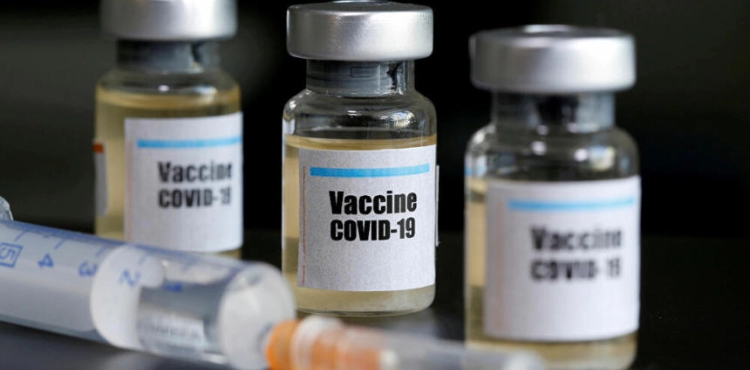The World Health Organization (WHO) Friday called on laboratories to share their technologies to increase the pace of vaccine production against Covid-19, at a time when US President Joe Biden warned that the pandemic could push his country to a "breaking point." ".
The Director-General of the World Health Organization, Tedros Adhanom Ghebreyesus, called for a "massive development of production capacity" for vaccines in order not to undermine the progress made in fighting the pandemic.
He mentioned, for example, the French pharmaceutical group "Sanofi", which had delayed developing its vaccine, but had proposed the production, as of this summer, of its competitor Pfizer-Biontec, the licensed vaccine that had proven highly effective.
"We invite other companies to do the same," he said.
The financial stakes are huge. Pfizer considered that the number of its vaccine works against Covid-19 will reach 15 billion dollars in 2021.
And at the end of January, the Swiss laboratory, "Novartis", announced that it was putting at disposal the capabilities to properly package the Pfizer-Biontech vaccine in drugs.
"The companies that produce can do more than that: They have raised huge public funds and we are encouraging them all to share data and technologies to help a fair distribution of vaccines in the world," Tedros said.
Meanwhile, US President Joe Biden stressed the difficulties that a large number of Americans face due to the pandemic.
"I see a lot of suffering in this country. Many have lost their jobs and many are hungry or have reached breaking point," Biden said of the White House.
"The Americans are waiting for help from their government (...) I will act quickly," he added.
His government offered a $ 1900 billion aid plan to revive the US economy, which has not yet recovered, with a sluggish job market despite a slight decline in the unemployment rate in January.
In Germany, the director of the Robert Koch Institute for Public Health also sounded the alarm. "The virus is not tired yet, on the contrary, it has become stronger," with the British and South African mutated versions, Lothar Feller declared, dashing hopes for a rapid lifting of restrictions to counter a virus that has become "more dangerous."
On the other hand, several European countries have limited the use of the vaccine developed by the "AstraZeneca" group, and it is now available. Spain decided to allocate it to those under 55, and Greece to those under 65.
France, Germany, Belgium, Denmark, Sweden and other countries have set age groups to receive this vaccine due to the lack of sufficient information on the possible risks among the elderly.
In the United States, the Johnson & Johnson laboratory required an urgent license to use its single-dose vaccine.
But his clinical results showed a problem after the vaccine was found to be more effective in the United States (72%) than in South Africa (57%), where a mutated version of the virus became more prevalent.
Experts believe in this evidence that the new mutated versions of the virus may override the immune defenses developed by current vaccines.
Around the world, the purchase and delivery of vaccines is accelerating.
In Europe, Serbia, which received Beijing´s aid, ranked first, and in this small Balkan country of 7 million people, more than 450,000 people received a single dose of the vaccine in two weeks, the second highest vaccination rate in European countries after Britain, according to For the scientific magazine "World and Data".
On the designated government website, individuals are required to fill out a form to find out their preferences. The names of the viruses, Sputnik and Cinopharm vaccines are highlighted.
And European Union Foreign Minister Josep Borrell announced Friday in Moscow that the Russian vaccine is "good news for humanity," expressing "hope that the European Medicines Agency will be able to license it." Russian Foreign Minister Sergey Lavrov confirmed that he wanted to cooperate in this field with Western competitors.
In parallel with vaccination, isolation measures are still imposed.
On Friday, Australia, which will start the vaccination campaign this month, announced that anyone entering the country is still required to comply with a two-week quarantine.
As for Sweden and Denmark, they announced their intention to develop in the coming months an "electronic passport proving receipt of the vaccine" to facilitate travel abroad and also attend sporting and cultural events and even entering restaurants in Denmark, for example.
For its part, Israel announced on Friday the extension of the suspension of international flights and the closure of its land borders, even if it will gradually lift, as of Sunday, the isolation that has been in place for more than a month, after a slight decrease in the number of injuries.
According to an AFP tally on Saturday, the pandemic has killed at least 2 million 299,637 people in the world.
More than 120 million doses of the vaccine against Covid-19 have been used in at least 82 countries or regions, according to an AFP census Friday based on official sources.












